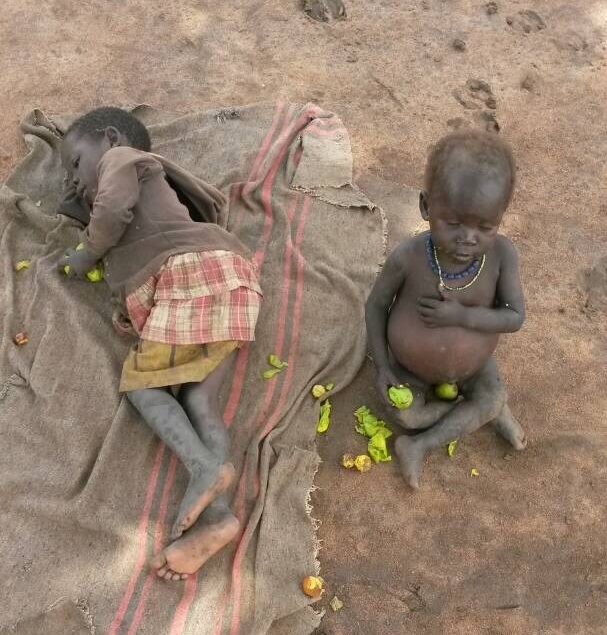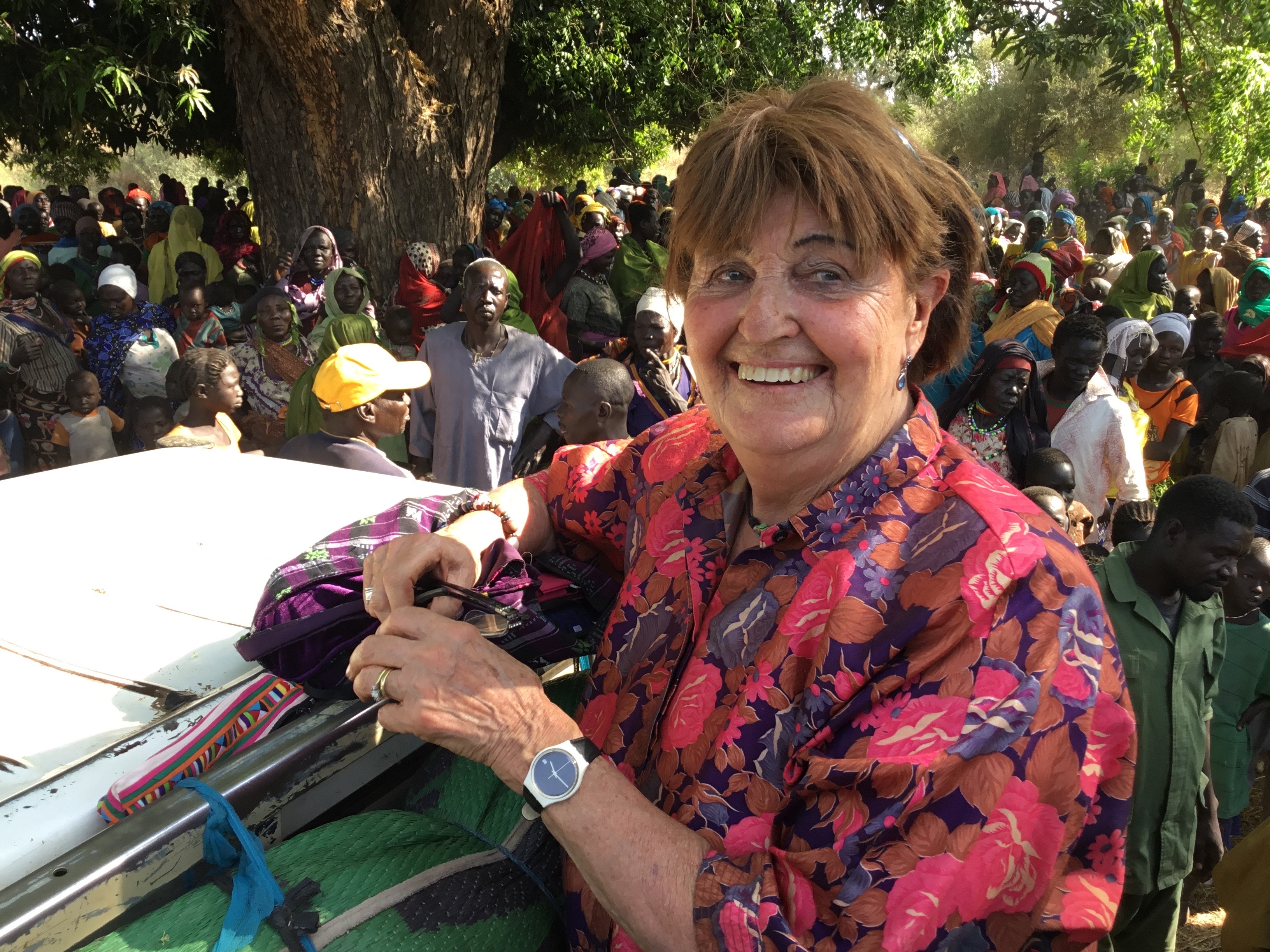Off-grid solutions for those most in need
If you work in infrastructure and are charitable by nature, it can be difficult to marry personal and professional interests.
WaterAid is a long-established provider of water infrastructure in developing countries, but it is hard to think of too many other well-known aid organisations specialising in this sector.
The falling cost of renewable energy is however inspiring a new breed of charity organisations, which use cheap green power as a foundation for more fundamental infrastructure development. One such charity is UK-based Power for the People (PFP), which was founded in 2015.
As evidenced by the recent project launched by the EIB in Gambia and the ongoing tenders run by Abu Dhabi’s International Renewable Energy Agency, off-grid renewables and, increasingly, energy storage technologies, are starting to offer reliable power to those previously unconnected.
As IJGlobal has reported in detail in recent years, energy storage technology has a chance of breaking the standard power market model, for the benefit of the currently underserved. In time its should rapidly expand the application of cheap renewable power, but for now there remain many communities in emerging countries which lack investment and a way of paying for the power and services which could connect them to the wider economy.
It is these communities PFP aims to assist.
The charity seeks to utilise off-grid renewable energy to transform the economic fortunes of rural communities in less developed countries. With reliable power, it believes these communities can build better health and education services as well as sustainable businesses.
Its motto of “handshakes not handouts” intends to appeal to those sceptical of the effectiveness of development aid and charitable causes. With its emphasis on renewable energy as a solution to significant humanitarian challenges, it would also like to grab the attention of those working in the energy and infrastructure sector.
But does it deserve your attention?
To date the charity has focused most of its efforts in Eastern African. Its projects include the installation of off-grid renewables to support an orphan rehabilitation centre in Uganda, flood ravaged communities in the state of Blue Nile in Sudan, internally displaced people in South Sudan and education and economic empowerment schemes for young women in rural Uganda and 'street boys' in Kenya.
Many of its projects are in partnership with Humanitarian Aid Relief Trust (HART) – a charity founded by UK parliamentarian Baroness Cox in 2003. Cox described herself to IJGlobal as “a nurse by profession, Baroness by astonishment”.
She first became involved in charity work as part of the Medical Aid for Poland, which sought to help dispossessed people in that country around the time the Iron Curtain fell. She says she has always tried to take a hands-on approach, from “riding on the trucks” delivering aid in Poland, to sleeping in rural communities in East Africa.
Today her charity HART provides aid and advocacy to communities suffering oppression and persecution. Cox acknowledges the problems with traditional aid and presents HART as an alternative to this model.
Cox (pictured right) says: “There are well documented cases of too much aid from some large organisations not reaching the people for whom it was intended”, and frequently references Jonathan Foreman’s ‘Aiding and abetting: foreign aid failures and the great 0.7% deception’, published in 2012.
She argues however that smaller organisations like HART and PFP are able to take bigger risks and reach communities in countries such as South Sudan that others will not go into. She says its dual offering of aid and advocacy also marks it apart, and the PFP regeneration offering which makes it unique.
Cox’s easy way with anecdotes quickly reveals a long history of campaigning. That she has pursued a new opportunity with a start-up organisation such as PFP is evidence of her enduring stamina.
HART has begun working with PFP as the two groups see their respective efforts dovetailing with each other, as reliable renewable generation can help recovering communities start to flourish.
As PFP founder Nasrin Sharifi explains: “What HART does is tackle the crisis and build a foundation, PFP bring regeneration when the crisis is over to address the huge legacy of poverty and disease left behind.”
The infrastructure link
PFP has forged partnerships with several companies involved in infrastructure finance, such as KPMG, Canadian Solar, EP Global Energy, Solar Technology International, Kirchner Solar Group, and law firm Lux Nova Partners.
Its most prominent supporter from the infrastructure finance community is James Stewart, KPMG’s former chairman of global infrastructure who now sits on the professional services firm’s board as one of four vice-chairs.
Stewart first became aware of PFP at IJGlobal’s World Infrastructure Summit in 2015. PFP was one of the event’s sponsors and had created a scarcely believable scene at the pre-event drinks reception.
Musician Emmanuel Jal, an ambassador of PFP, had captivated the audience of finance professionals by recounting his forceable enlistment as a child soldier in South Sudan and subsequent miraculous escape. With his audience mesmerized, Jal then managed to make this room of suits follow his instructed dance moves as he sang and rapped from the stage.
For those in attendance it was a surreal moment to live long in the memory, but it was the message of the charity rather than the stiff dancing of his contemporaries that had peaked Stewart’s interest. A conversation that evening with Sharifi convinced him to get involved with PFP, and before long he found himself as the charity’s chairman.
He believes the rapid development and deployment of renewable energy technologies worldwide has created an opening for a new type of charity.
“Technology is creating leverage and an opportunity for transformation which was not there before”, Stewart told IJGlobal.
“The two things we focus on initially are farming and solar power, and there is a connection between the two. In many of these places people can’t farm because they need water; they can’t pump water without power; and they either don’t have that power or it is incredibly expensive. So without solar power, farming is uneconomic or simply doesn’t work.”
PFP targets creating sustainable food security as it believes it is the foundation for driving economic growth.
Stewart recognises a fatigue with charitable appeals among his peers but believes the PFP model provides a more direct and transparent way to help people in need.
“I think there is a lack of confidence that the money given will be used effectively… What interests me is creating a trusted channel to donate money, as I think there is tremendous fundraising potential.”
PAORINHER Sustainability Project
Between 1989 and 2008 the Lord’s Resistance Army rebel militia is estimated to have killed 500,000 people and displaced another 1.6 million in Uganda and bordering countries.
Though the LRA left Uganda around a decade ago, decades of widespread human rights violations have left deep scars in the north of that country.

HART has since helped to establish on the site at Patongo a school and community outreach programme which now has more than 700 pupils and 800 homesteads enrolled.
PFP is leading the next phase of development at PAORINHER. It entails the installation of solar power generation and the establishment of a farm. It says the two biggest challenges facing PAORINHER are a lack of direct electricity supply, which leaves its people reliant on health-impacting kerosene lamps outside of daylight hours, and a lack of employment opportunities.
Sharifi explains: “The farm has two main purposes. First to become the revenue generation arm for PAORINHER, and second to create a community centre and centre of expertise, with seed banks, access to tools, and microfinancing to kickstart regeneration for the whole of the district community.”
Sharifi emphasises the importance of building a sustainable marketplace which will eventually fund PAORINHER's expanding activities and the operation of the farm.
Cox adds: “It is almost mission accomplished on HART’s original mandate [in PAORINHER], but what Power For The People has to offer is transformational, it is going to change their lives in so many ways.”
One innovation PFP is employing at PAORINHER and will rollout as part of other projects, is solar-powered egg incubators which ensure maximum hatch rates at the farm.
Stewart acknowledges the challenges of bringing substantial new wealth into rural communities (“400 chickens is like a gold mine”), but says “we think that the only way you create security is to get community buy-in.”
PFP hopes the relationships HART has established with the local community over the last decade will ensure its success and protect it from corruption and mismanagement.
PFP is beginning work on the farm project this year and expects to complete it, over two phases, by late 2023. It estimates the cost at roughly £415,000, and expects it to generate £100,000 in annual gross revenues for the community once completed and operational.
“[What we are doing] is effectively bridge finance,” Stewart explains, “as it may takes six months for revenues to be generated at these sites. Sometimes we will ask for some money back but other times we will just be making sure it goes back into the community.”
Appeals for assistance
PAORINHER is just one of the projects PFP is undertaking at present, but it is subject to a concerted fundraising effort. It is one of the participating causes for online fundraising portal the Big Give’s Christmas Challenge, where the website will double any money raised.
Stewart and Sharifi are also looking for more long-term support, particularly from institutions with an understanding of the difficulties of building infrastructure in developing countries.
Stewart acknowledges that the risks are much higher for these PFP projects compared to traditional infrastructure development but also points out how transformative they can be at a comparatively low cost.
“We are looking for individuals with talent who are interested in helping, and we are looking for corporate partners”, Stewart says.
“Individual assistance is great but corporates bring leverage, both institutional and in terms of fundraising, which could make a big difference.”
More information on PFP can be found here, and on HART here.
PFP is raising funds for PAORINHER via its Big Give Christmas Challenge https://secure.thebiggive.org.uk/projects/view/29746/ - any donations made between 27 November and 4 December will be doubled.
Request a Demo
Interested in IJGlobal? Request a demo to discuss a trial with a member of our team. Talk to the team to explore the value of our asset and transaction databases, our market-leading news, league tables and much more.
